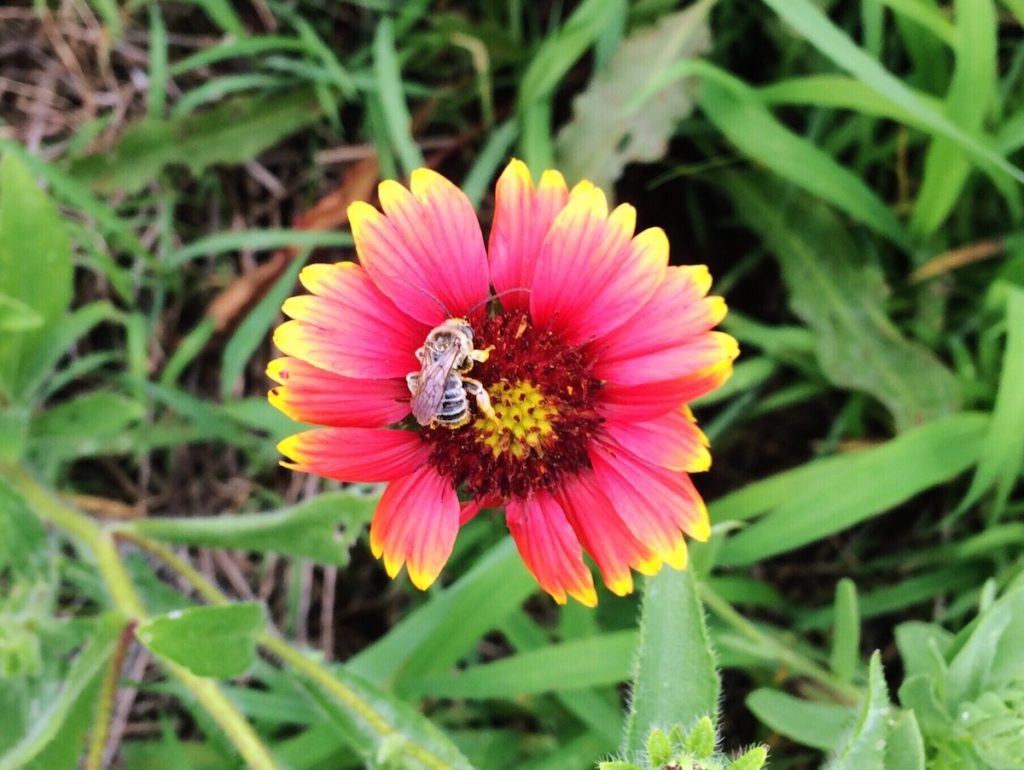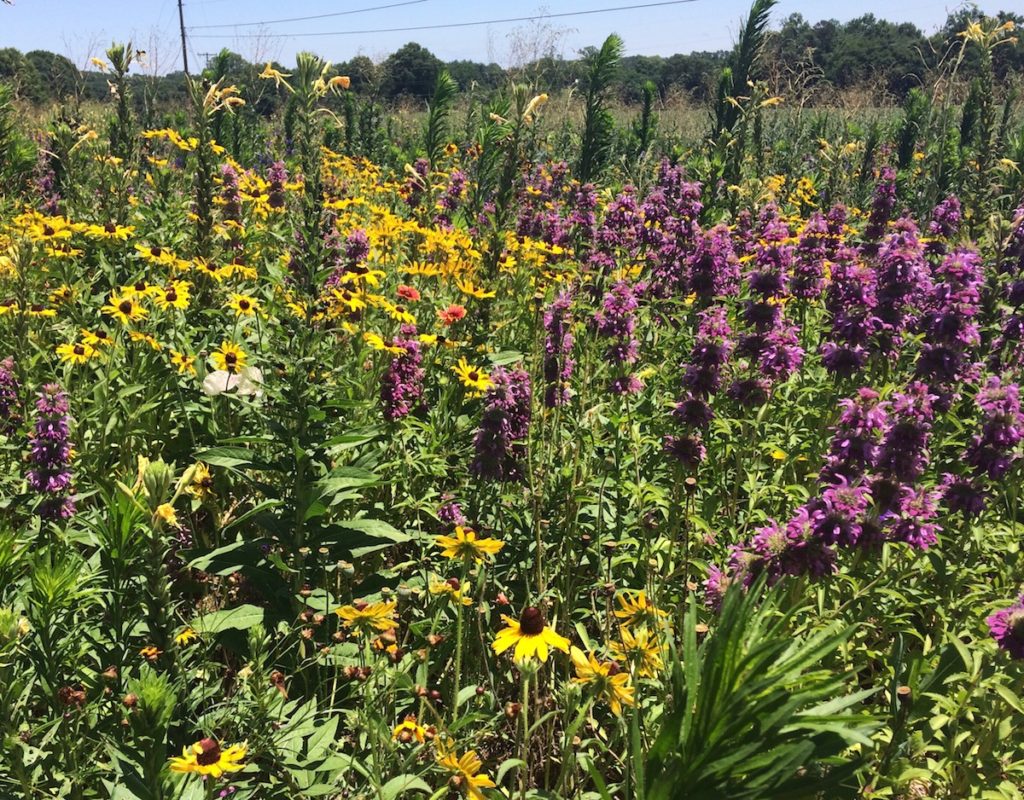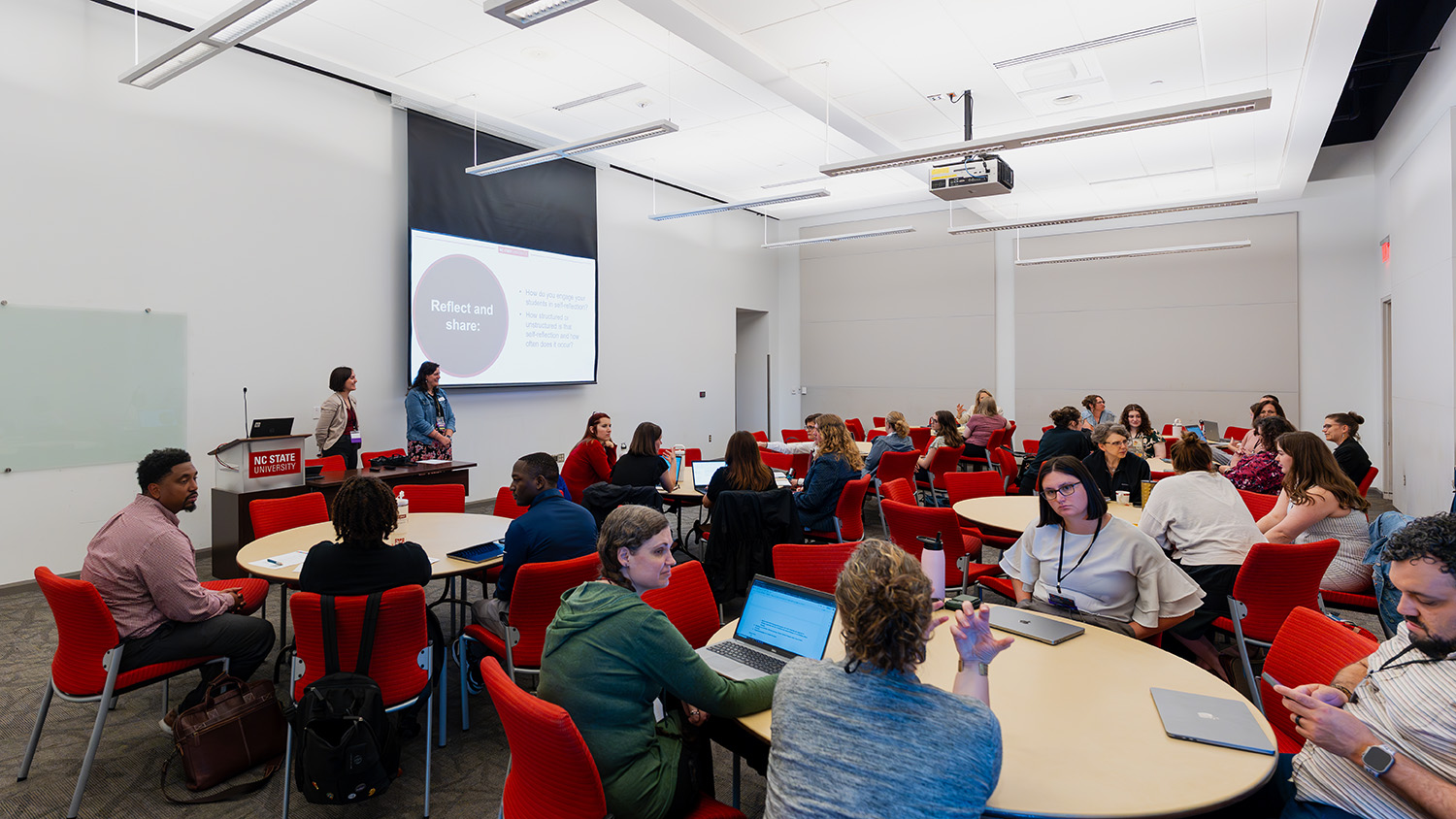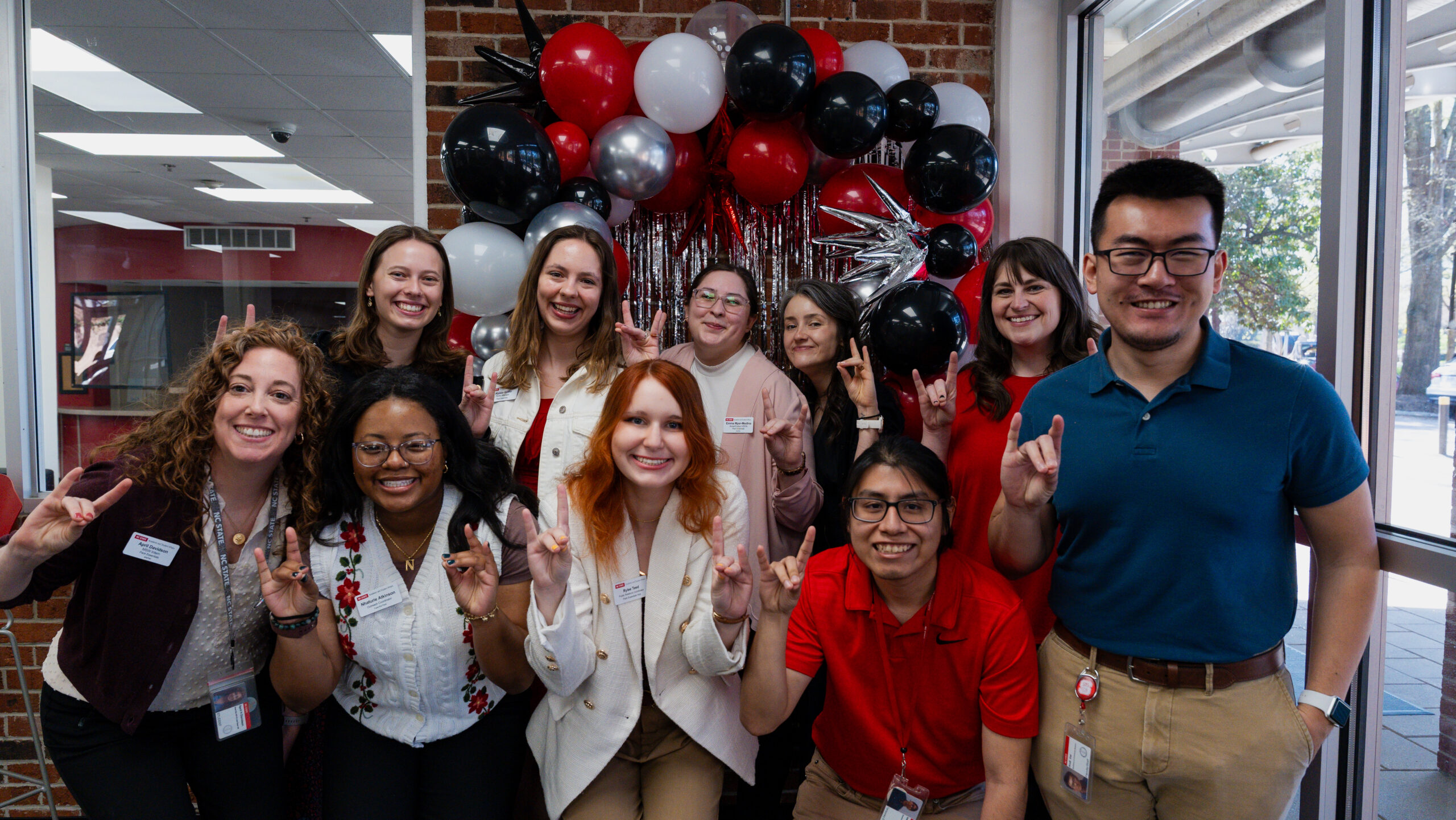Spotlight on our Students: Research is buzzing
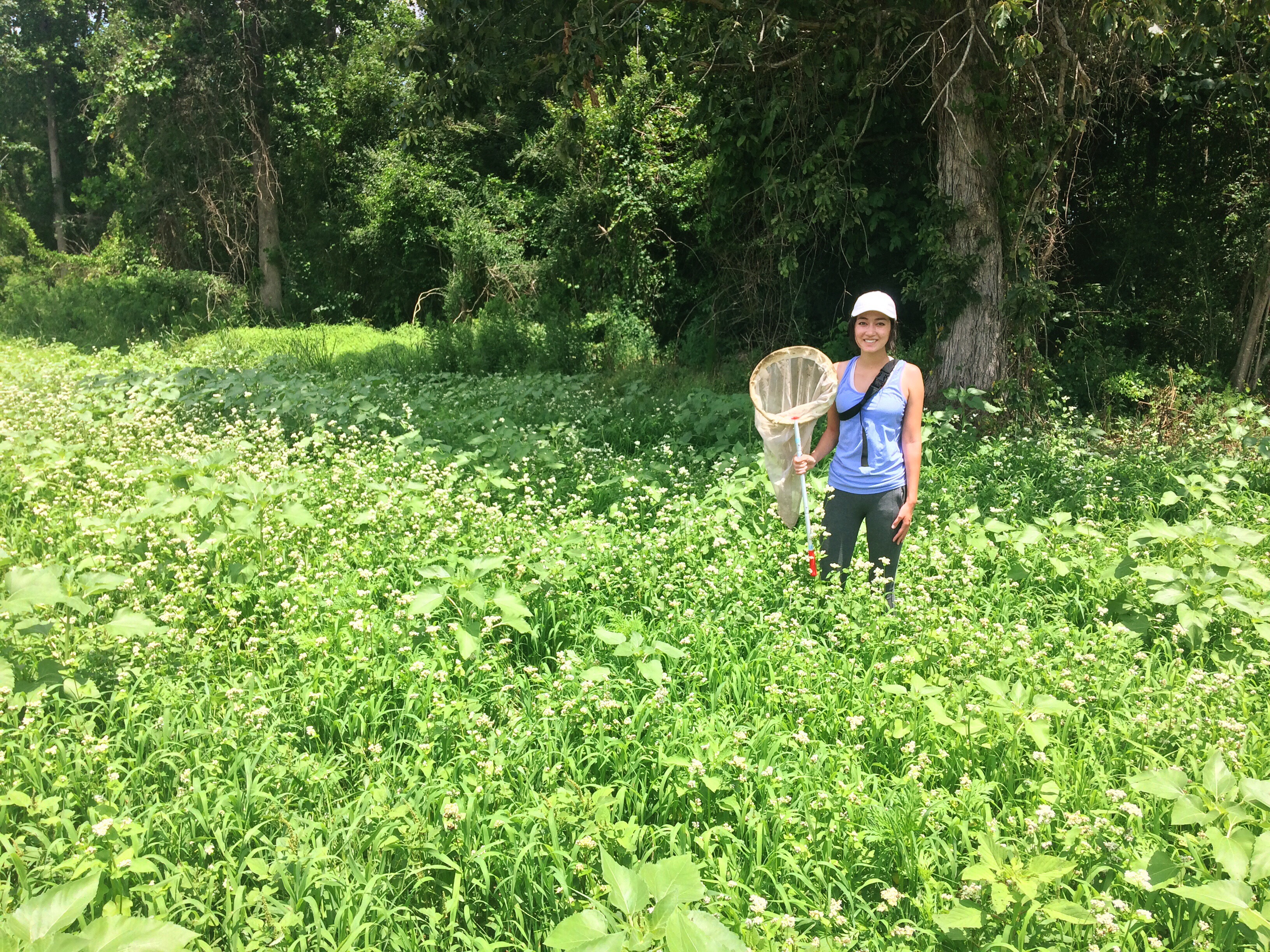
In this edition of Spotlight on our Students, we talked with April Sharp about her research experience focused on native bee populations.
April is a rising third-year University Scholar from Pittsboro, North Carolina, majoring in Environmental Science. Read on to learn more about her time learning about these super important insects and the role of their habitats.
USP: April, can you tell us what inspired you to get into this line of research?
AS: Working as a field research assistant for Ph.D. student Hannah Levenson, I have been spending my summer studying native bees and other pollinators across North Carolina. Hannah’s project focuses on native bee populations and how they are affected by planted habitat. I’m so excited to be a part of this project this summer as I am very interested in insects and pollination dynamics, and this opportunity has been an amazing learning experience so far!
USP: Pollinators are a constant headline these days and we are only just now beginning to understand the impact we have on them. What are you hoping to learn from this experience, specifically?
AS: Through this research, I hope to learn more about native bees and understand their pollination dynamics. I also hope to learn about the ways in which we can help support insect populations such as managing habitat and improving agricultural practices.
USP: That is very important work. We need healthy pollinators and suitable habitat for them now more than ever. What have been some of the most interesting or challenging things you’ve experienced working on this project so far?
AS: Traveling across the state to study pollinators has given me insight into the incredible diversity of insects within North Carolina. Being able to compare the biodiversity of insects from different regions of the state has been really interesting! While in the field, we conduct thorough visual observations of the different pollinators present and we also collect some samples to take back to the lab. In the beginning, catching and removing these specimens from their habitat was morally conflicting for me, which presented a challenge, but I reminded myself that it’s a necessary step in being able to better understand and support these insects.
USP: What would you say is the most important thing you’ve learned so far doing this research on pollinators?
AS: Learning about bees and the numerous misconceptions propagated by the media has been one of the most valuable things I have learned so far. When I first became involved in this project, I was surprised by all the false or misleading information that I had previously believed to be true. I think that it’s incredibly important to be fully educated about our native wildlife because that is the first step in being able to protect and support their populations.
USP: Has your time as a University Scholar prepared you for research like this? How so?
AS: Through the University Scholars Program, I have learned about some of the amazing experiences that other USP students have participated in. Hearing about the experiences of my peers inspired me to seek exciting opportunities for myself.
USP: It is so valuable to hear about the experiences your peers are having in order to motivate you to pursue your own. What advice would you give others that want to pursue research outside the lab?
AS: I would recommend for other students who are interested in research, but have no prior experience, to be unafraid of seeking opportunities. Experience can always be gained, while passion and enthusiasm are qualities that can be equally important.
USP: Yes, a “can do” attitude is essential in finding these sorts of opportunities. Now, what would you say is the best advice you’ve ever received?
AS: The best advice I have ever received is to be unafraid of being different. People are often surprised that I am pursuing my passion for entomology, especially since it’s a field heavily dominated by males. This advice, given to me by a mentor, has helped me push past the judgment of others, and move closer to my aspirations.
USP: April, that really is good advice. Stick to it and we will be excited to hear more about your research findings in the fall when you are back on campus.
